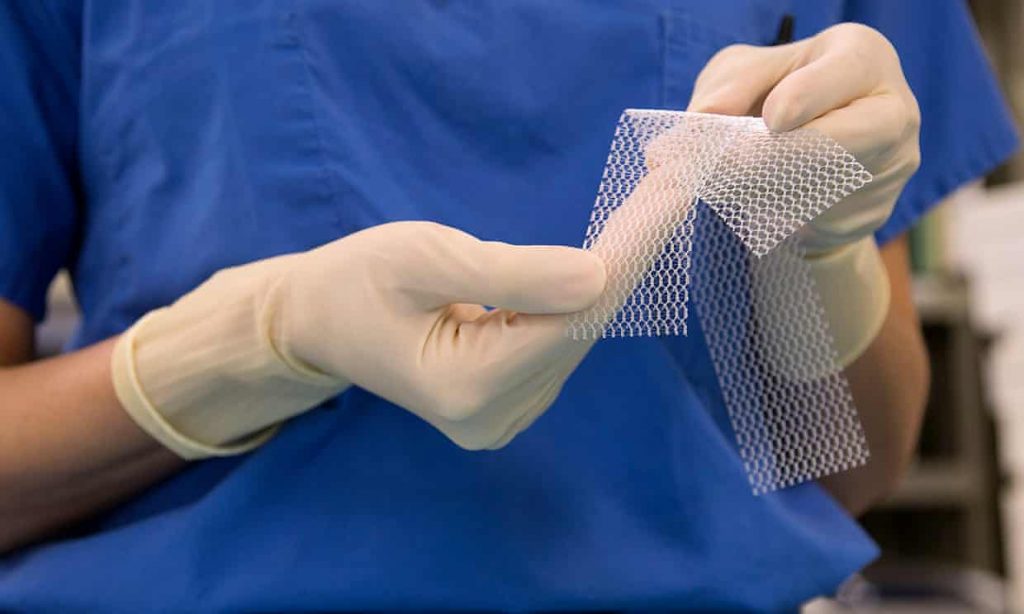A quick fix? feelings of splintered glass inside them ? NHS spending millions on care for women with vaginal mesh ; Informed consent; absorbable or non absorbable synthetic polymers….. and so it continues …yet has NICE abandoned mesh-injured women?
Vaginal mesh implants should not be offered to women until they have explored all other possible options, according to the UK’s health watchdog.
The National Institute for Health and Care Excellence (Nice) had issued new draft guidelines suggesting a full range of non-surgical interventions should be provided.
Sir Andrew Dillon, chief executive of Nice, said: “It is important that every woman is supported to make decisions that are right for her, consents to a procedure, and fully understands the benefits and risks of the procedure being offered before consenting to it. Where surgical mesh/tape could be an option, there is almost always another intervention recommended in our guideline, which does not involve surgical mesh/tape.
“If a surgeon cannot provide a full range of choices to the patient, then she should be referred to one who can. Surgeons must also record any intervention using surgical mesh/tape in a national database.”
Commenting on the draft guidelines, Kath Sansom of the campaign group Sling The Mesh said: “These draft guidelines are to be welcomed but they do not go far enough. Our ideal scenario is to see pelvic mesh stopped. Full stop. The risks are too great. It is totally unacceptable that women come out of a ‘simple little operation’ with shattered lives.
“One in seven have lost their marriages because of mesh. One in seven have lost their sex life. Eight out of 10 suffer pain so great it affects their daily life. More than half suffer ongoing urinary infections. Unsurprisingly many are suicidal and six in 10 are on anti-depressants.”
Nice had recommended the procedure should not be used for pelvic prolapse and their use for incontinence be temporarily banned.
However with a controversial U turn the updated guidelines appear to disregard mesh-injured women`s experiences and says that operations can be offered again, once certain conditions are met .
NICE said operations must be performed by specialist surgeons at specialist centres before their reintroduction.
All instances – and outcomes – of vaginal mesh operations should also be recorded on a national database “to help with future decision-making”, it said.
The NHS is not compelled to act on the guidelines – which are for England only – and the “pause” on vaginal mesh surgery remains in place.
Surgical mesh or Tape should only be considered when non-surgical options have failed or are not possible .
Baroness Julia Cumberlege has agreed that the suspension of vaginal mesh should continue until her findings are published.
Baroness has said her team have set “five conditions that would need to be met before the pause could be lifted and the use of mesh contemplated”
“Those conditions have not yet been met and it is clear to us that it will be some considerable time before they are.
“This means that, now and for the foreseeable future, mesh should not be used to treat stress urinary incontinence, either in the NHS or the independent sector.”
“The scale and intensity of this tragedy is truly shocking – lives have been ruined.”
What type of complications have been reported ? Many women are reporting a range of issues from the use of mesh , to include
- organ perforations
- infections
- sexual issues
- mobility issues
- serious nerve damage
Informed Consent !
This seems to be a major factor . Patients are being offered a “quick fix” only to end up with their lives being turned upside down by mesh . Relationships destroyed , careers broken , healthy and active women reporting feelings of splintered glass inside them .
We understand that this is a sensitive area and many who undergo this type of surgery may feel uncomfortable of seeking legal support. It is important to know what your options are and doubly important to talk to a lawyer who has genuine expertise in this complex area.




